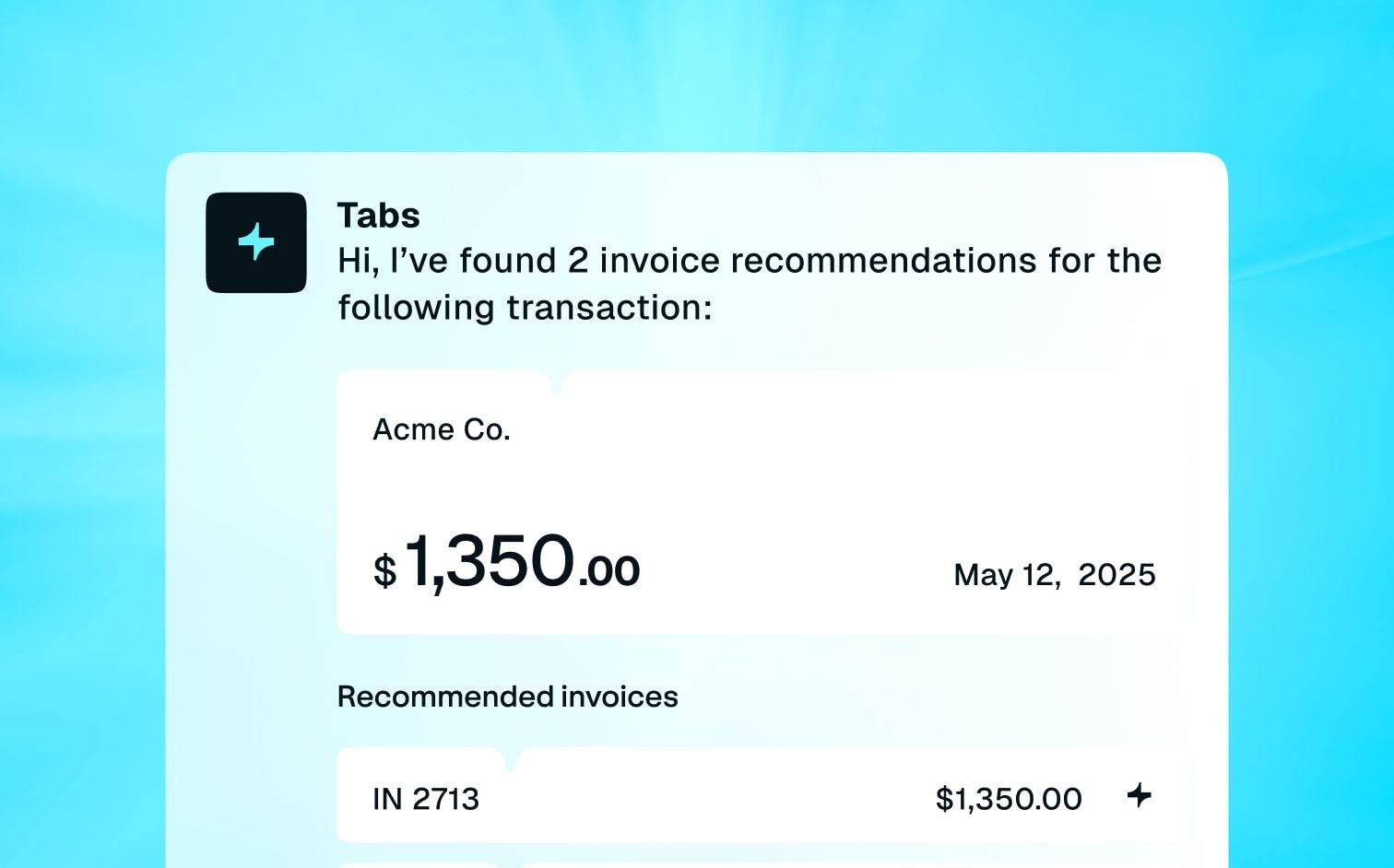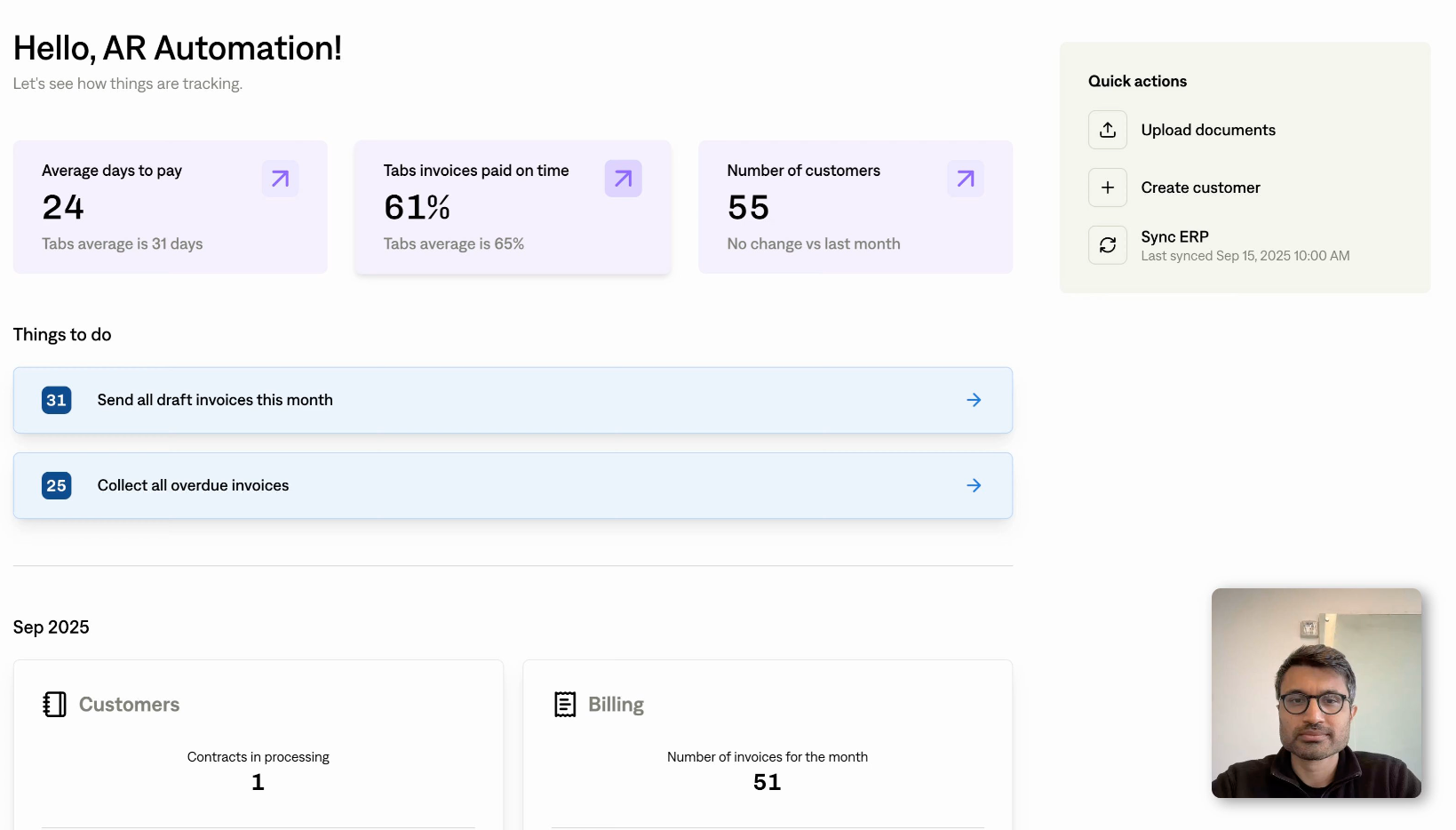Deferred revenue is essential for any business that receives payments upfront for future services or goods. This includes subscription services, software licenses, and even landlords collecting rent. Deferred revenue is money you have received but have not officially "earned" yet. This is because you still need to deliver the product or service.
This post will explain how it impacts your finances, how to recognize and record it correctly, and how to leverage it for growth. We'll also address common misconceptions and offer practical tips for managing deferred revenue effectively, ensuring compliance, and optimizing your financial reporting.
Key Takeaways
- Deferred revenue represents future obligations.Deferred revenue is money received for services or products you haven't yet delivered. Recognize it as revenue only when you've fulfilled those obligations.
- Accurate tracking is essential for informed financial decisions.Properly managing deferred revenue ensures accurate financial reporting. This is crucial for forecasting, planning, and making strategic business decisions.
- Deferred revenue can help your business grow.Upfront cash provides opportunities to invest in your business and build stronger customer relationships..
What is Deferred Revenue?
What is Deferred Revenue and How Does It Work?
Deferred revenue (also called unearned revenue) is money a business receives before delivering a product or service. Think of it like getting paid in advance.
Let's say a customer pays for a year-long software subscription upfront. You now have that cash on hand, but you haven't actually earned it yet because you still need to provide the software access for the entire year. That's deferred revenue.
Why is Deferred Revenue a Liability?
Companies record deferred revenue on their balance sheet as a liability. It's a liability because it represents a future obligation to your customer. You owe them something—the product or service they've already paid for. If for some reason you can't deliver, you might be obligated to issue a refund.
As you deliver the goods or services over time (in this case, monthly access to your software), you gradually move the deferred revenue to your income statement as earned revenue. This process is called revenue recognition.
If your software company went out of business after six months, you would likely need to refund the remaining six months of service to your customers. That's why it's crucial to track deferred revenue accurately. A deferred revenue account on your balance sheet helps you keep tabs on this money until the goods or services are delivered and the revenue is officially earned. This clear accounting ensures you have a realistic view of your financial position and obligations.
Examples of Deferred Revenue
Understanding deferred revenue can feel abstract, so let's look at some concrete examples. These scenarios illustrate how businesses across different industries handle this aspect of their finances.
Subscription Services
Think about companies like Netflix or Spotify. Customers pay upfront for a month or a year of service. The company doesn't record the entire payment as revenue on day one. Instead, they recognize a portion of that revenue each month as the customer accesses the service.
This approach accurately reflects the value delivered over time and aligns revenue with the actual service provided, giving a clearer picture of the company's financial performance. For more detail on this concept, check out Investopedia's explanation of deferred revenue.
Software Licenses and Support
Software companies often sell annual licenses with bundled support. Imagine a customer pays $1,200 for a one-year software license and technical support. The company wouldn't book the entire $1,200 as revenue immediately.
Instead, they would recognize $100 of revenue each month for 12 months as they provide the software access and support services. This method ensures that revenue is matched with the period in which the service is delivered.
Prepaid Services
Prepaid services cover a wide range of business models. A landlord receiving rent payments in advance is dealing with deferred revenue. The same goes for a magazine publisher receiving prepayments for annual subscriptions, or a SaaS company receiving an annual payment for its software. In each of these cases, the revenue is recognized over the period the service is rendered.
Whether it's access to software, a physical magazine, or an apartment, the principle remains the same: recognize the revenue as the service is provided. For more examples of how prepaid services generate deferred revenue, take a look at this resource from Accounting Capital.
How to Recognize and Record Deferred Revenue
This section clarifies how to accurately recognize and record deferred revenue, ensuring compliance and strong financial management.
The Revenue Recognition Process
Under accrual accounting, you only recognize revenue when it's earned, not simply when cash changes hands. This aligns with the core principle of matching revenues with the period in which the related expenses occur. So, even though you have the cash, you haven't fulfilled your obligation yet—meaning you haven't technically earned the revenue.
Accounting Entries and Financial Statement Impact
Let's illustrate the accounting process with an example. Imagine a customer prepays $1,200 for a year-long software subscription. Initially, you would record a debit to your cash account (increasing it by $1,200) and a credit to your deferred revenue account (also increasing it by $1,200).
As each month passes and you provide the software service, you'll reduce the deferred revenue liability and recognize $100 of revenue. This means a $100 debit to deferred revenue and a $100 credit to your revenue account. This process continues monthly until the entire $1,200 is earned, impacting your cash flow significantly.
GAAP vs. IFRS Treatment
While both Generally Accepted Accounting Principles (GAAP) and International Financial Reporting Standards (IFRS) address deferred revenue, some key differences exist. This is particularly true when handling multiple-element arrangements, which are contracts involving more than one product or service.
For example, under IFRS, revenue allocation for multiple-element arrangements is based on relative standalone selling prices. Understanding these nuances is crucial for accurate accounting and compliance. If your business operates internationally or deals with complex contracts, consulting with a knowledgeable accountant is essential to ensure you're applying the correct standards.
How Deferred Revenue Impacts Finances
Deferred revenue significantly impacts a company's financial health, influencing key areas like cash flow, tax liabilities, and forecasting accuracy. Understanding these impacts is crucial for making informed business decisions and ensuring long-term financial stability.
Cash Flow and Liquidity
Deferred revenue plays a vital role in cash flow analysis. When you receive upfront payments for services or goods not yet delivered, it increases your available cash reserves. This immediate liquidity can be advantageous, providing a cushion for operational expenses, investments, or unexpected costs.
However, it's important to remember this cash isn't "earned" yet. You have an obligation to deliver the promised goods or services, so it's essential to manage this influx carefully and avoid overspending based on unearned income. Balancing current cash flow with future obligations is key to maintaining healthy financial operations.
Taxes
Deferred revenue also has tax implications. Because it represents income not yet earned, it's not taxed immediately. This can be a strategic advantage, allowing you to defer tax liabilities to future periods.
By strategically structuring your contracts, you can manage your tax burden more effectively and optimize your financial planning for the long term. Consult with a tax professional to understand the specific implications for your business and jurisdiction.
Forecasting and Planning
Accurate financial reporting hinges on properly managing deferred revenue. It directly impacts your financial statements, influencing key metrics and providing a clearer picture of your company's financial health. Understanding and accurately projecting your deferred revenue is crucial for reliable financial forecasting.
This allows you to anticipate future revenue streams, plan for expenses related to fulfilling those obligations, and make informed decisions about growth and investment. By accurately tracking and recognizing deferred revenue, you gain a more realistic view of your company's actual earnings and overall financial performance, enabling more effective long-term planning.
Manage Deferred Revenue Effectively
Managing deferred revenue isn't just a bookkeeping task; it's vital for understanding your financial health and making informed business decisions. Let's explore some best practices for effectively managing this key aspect of your finances.
Handling High Transaction Volumes
In high-volume subscription businesses, managing deferred revenue can feel overwhelming. The sheer number of transactions makes it challenging to accurately track payments and their corresponding service delivery schedules. This complexity requires meticulous tracking of each payment.
Automating your revenue recognition process is key to simplifying this and ensuring accuracy. Look for tools that integrate with your billing system to automate revenue allocation and recognition over time. This not only saves time but also reduces the risk of errors. A streamlined, automated system improves efficiency and allows your team to focus on strategic financial decisions.
Implement Strong Accounting Systems
Robust accounting systems are crucial for managing deferred revenue. SaaS companies need to ensure they accurately track advance payments and recognize revenue correctly throughout the subscription period. A strong system provides clear visibility into your deferred revenue balance, automates the revenue recognition process, and generates accurate reports.
This foundation is essential for informed financial decision-making. Integrating your billing platform with your accounting software streamlines data flow and minimizes manual entry, reducing the chance of errors and freeing up valuable time for your team.
Ensure Compliance and Accurate Reporting
Properly managing deferred revenue is paramount for accurate financial reporting. Accurate reporting directly impacts your financial statements, influencing key metrics and providing a transparent view of your company's financial position. Consistent and accurate reporting builds trust with investors and stakeholders, demonstrating sound financial management.
Regularly review your processes to ensure they align with current accounting standards and regulations. This proactive approach helps maintain compliance and avoid potential penalties.
Reconcile Regularly and Train Staff
Regular reconciliation is essential for verifying the accuracy of your deferred revenue records. Internal reviews, along with periodic external audits, help ensure compliance with accounting standards. Regular audits can identify and address discrepancies early, preventing larger issues down the line.
Investing in training for your finance team is equally important. A well-trained team understands the nuances of deferred revenue and contributes to accurate record-keeping and reporting. This proactive approach minimizes errors and strengthens your overall financial management. Consider implementing a system of checks and balances to further enhance accuracy and accountability within your team.
Use Deferred Revenue to Grow Your Business
Deferred revenue isn't just a number on your balance sheet; it's fuel for growth. By understanding how to leverage it effectively, you can create a more stable and profitable business.
Invest Deferred Revenue
This influx of funds provides an opportunity to invest in your business's future. Consider using this capital to expand your product offerings, enhance your marketing efforts, or invest in research and development. These strategic investments can lead to long-term growth and increased profitability. Managing deferred revenue effectively is crucial for the financial health of any subscription-based business.
Strengthen Customer Relationships
While deferred revenue focuses on the financial side of your business, it also presents opportunities to enhance customer relationships. Knowing you have predictable revenue streams allows you to focus on providing exceptional customer service and building long-term loyalty. Consider using some of your available cash to develop customer success programs or create personalized onboarding experiences.
These initiatives can foster stronger customer relationships, leading to increased retention and positive word-of-mouth referrals. Accurate financial reporting provides a precise representation of your company's financial position, freeing you up to focus on your customers.
Improve Financial Stability
Perhaps the most significant benefit of deferred revenue is the financial stability it provides. A clear understanding of your future revenue streams allows for better financial planning and forecasting. You can more accurately predict your cash flow, which enables informed decisions about budgeting and other critical business operations.
This predictability also makes your business more attractive to investors. Deferred revenue plays a significant role in cash flow analysis, influencing how companies manage their liquidity. This improved financial stability creates a solid foundation for sustainable growth. Properly managing this revenue is also essential for accurate financial reporting, providing a clearer picture of your company's financial health.
Address Misconceptions and Reduce Risks
Smart financial management hinges on understanding the nuances of deferred revenue. Let's clear up some common misunderstandings and explore how to minimize potential risks.
Common Misunderstandings
One frequent misconception is thinking deferred revenue is simply revenue that was deferred in the past. It's more specific: deferred revenue is cash received in advance for goods or services not yet delivered. Think of it as an IOU to your customer.
Another misconception is viewing deferred revenue as immediate income. This can lead to premature revenue recognition, which distorts your financial statements and creates an inaccurate picture of your business's health. Accurately tracking and recognizing deferred revenue is key for sound financial reporting.
Prevent Compliance Issues
Properly managing deferred revenue is crucial for staying compliant with accounting standards. Regular internal and external audits are essential for verifying the accuracy of your records. Because deferred revenue often involves estimations and management judgment, it's an area auditors scrutinize carefully for potential misstatements.
Understanding the financial impact of deferred revenue accounting is key to maintaining compliance and avoiding potential issues. Robust accounting software can help automate these processes and reduce the risk of errors.
Balance Cash Flow and Obligations
While receiving upfront payments increases your cash reserves and provides immediate liquidity, it also creates an obligation to deliver the promised goods or services. This means you need to carefully manage your cash flow to ensure you can meet these future obligations. For subscription-based businesses, this is particularly important, as recognizing revenue over the subscription term provides a more accurate reflection of your financial performance.
By accurately tracking and managing deferred revenue, you can maintain a healthy cash flow while fulfilling your commitments to customers. This approach leads to greater financial stability and builds a stronger foundation for long-term growth. Using a comprehensive recurring billing platform can streamline this process and provide accurate insights into your deferred revenue.
Related Articles
- How to Record a Deferred Revenue Journal Entry
- Accrued Revenue: A Practical Guide
- What Exactly is Revenue Recognition?
Frequently Asked Questions
What's the difference between deferred revenue and accounts receivable?
Deferred revenue is money received for services or goods you haven't yet delivered. Accounts receivable, on the other hand, is money owed to you for services or goods you have already delivered but haven't been paid for yet. So, deferred revenue is a liability (you owe something), while accounts receivable is an asset (someone owes you something).
How does deferred revenue affect my company's taxes?
Because deferred revenue isn't considered earned income until the related goods or services are delivered, it's not taxed immediately. This allows you to defer tax liabilities to future periods when the revenue is recognized. This can be a significant advantage for financial planning, but it's always wise to consult with a tax professional for specific guidance.
What are some common mistakes companies make with deferred revenue?
A big mistake is recognizing deferred revenue as income too soon. Remember, you only earn the revenue when you've delivered the product or service. Another common error is not having a system in place to track and manage deferred revenue effectively. This can lead to inaccurate financial reporting and compliance issues.
Finally, some companies fail to leverage deferred revenue strategically for growth opportunities, missing out on potential investments and improvements.
What kind of software can help me manage deferred revenue?
Look for robust accounting software that integrates seamlessly with your billing system. This automation helps track payments, allocate revenue over time, and generate accurate reports.
A good system will streamline your processes, reduce manual errors, and provide clear visibility into your deferred revenue balance. For complex businesses with high transaction volumes, a platform like Tabs can be a valuable investment.
How can I use deferred revenue to benefit my business?
Deferred revenue provides a predictable income stream, which can be a huge advantage for financial planning and forecasting. This stability allows you to make informed decisions about investments, expansion, and other strategic initiatives. You can also use this predictable revenue to strengthen customer relationships by investing in customer success programs or personalized onboarding experiences.





